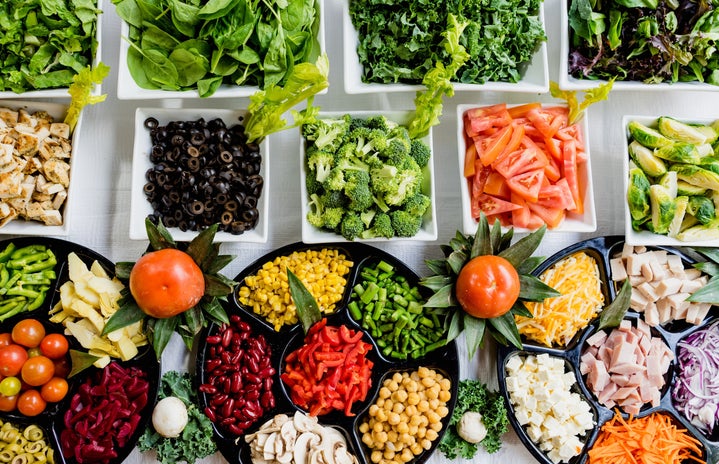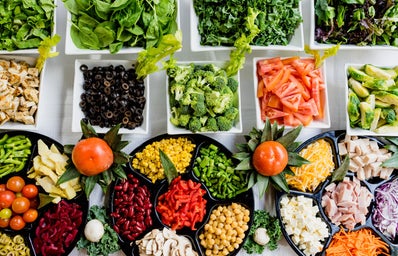Plant-based diets like vegetarianism and veganism are becoming more and more trendy recently and people are quickly picking up on the environmental and ethical benefits to adopting these lifestyles. Plant-based diets are also marketed as being much healthier alternatives to the standard American diets that the majority of people consume. However, there is definitely a way to do the veg lifestyle in an unhealthy and detrimental way to your body. As a vegetarian of almost three years, I can tell you a few mistakes I’ve made myself over the course of my transition into the veg life. If I could start over again, I would definitely do more research and be more prepared for the transition rather than jumping right in and hoping for the best. If you’re thinking of adopting a veg diet, hopefully bringing these potential issues to light will help you have a smoother ride.
The first thing I noticed when I first went vegetarian was that I could no longer leave my house for the day expecting to be able to conveniently find food options wherever I go. Even though recently, more and more restaurants and take-out joints are beginning to carry veg options, it’s still not as easy to find quick convenient foods as when I ate meat. If you’re vegan and not just vegetarian, this is an even bigger challenge. Part of taking on the adjustment to a plant-based lifestyle is to commit to planning ahead for outings, looking for restaurants online, checking out menus ahead of time and packing a lunch when you need to.
Out of my own personal experience, not knowing what to eat or what to pack for lunch sent me straight down a junk food rabbit hole. My go-to foods became peanut butter sandwiches, fries, pizza, and veggie burgers. While those foods are delicious in their own right, things can only be so good in moderation, and I began feeling nutritionally deficient. I was tired and nauseous all the time and had no energy or brain power to do much. I quickly realized that my diet was causing my problems. Going plant-based can be really great for your body and mind, but going junk food plant-based wasn’t going to give me the same outcome. Making sure you don’t fall into junk traps is important to succeeding with a new veggie lifestyle.
When cutting meat out of one’s diet, the usual quickest replacement for the missing calories is an overload of carbs. This is something I’m still trying to watch and avoid even after years of the veg life. The issue with carbohydrate heavy foods like bread, pasta and pizza is that they usually contain processed ingredients and are calorie heavy without being nutritionally effective or diverse. Consistently filling up your tummy with carbs without leaving room for vitamin and mineral-rich fruits and veggies, legumes, and other food groups can leave you feeling tired and maybe even sick. This is an unhealthy habit to pick up and new veggies should try to avoid falling into the traps of a carb-based diet rather than a plant-based diet.
Another difference new veggies will notice when going plant-based, is you’ll notice your body will ask for more food than you’re used to. This is pretty normal because cutting meat out of your diet will take out a large chunk of the calories your body is used to having. This just means you’ll have to increase your consumption of fruits and veggies and other plant foods in order to make sure your body is still getting the right amount of fuel it needs.
In addition to eating more, it is also important to eat the right amount of the different nutrients your body needs. Too often, vegetarians and vegans start to slack off in their diets and become deficient of nutrients like Protein, Vitamin B12, Omega 3’s and Iron. While all of these nutrients can be found in plant foods, they are unfortunately not found in the same quantities as they would be in meats and other animal products. In this sense, it’s really important to make sure you do your own research on which foods you need to incorporate more of in your diet and how much of each nutrient is necessary for you to feel good in your body. This needs to be tailored to your lifestyle as well – if you’re working out more than normal, you need to make sure you supplement your body enough by increasing your protein intake, for example.
These are just a few things new veggies should keep in mind as they cut out animals and animal products from their diets. The most important thing a new veggie can do to prevent developing bad dietary habits it to talk to a doctor about their current health and what changes they plan on making to their lifestyle. If you’re prone to certain nutritional issues, allergies or other problems, it’s important you and your doctor have a conversation about the best way to adopt the veg lifestyle without jeopardizing your own health. After all, you and your health are priceless.



